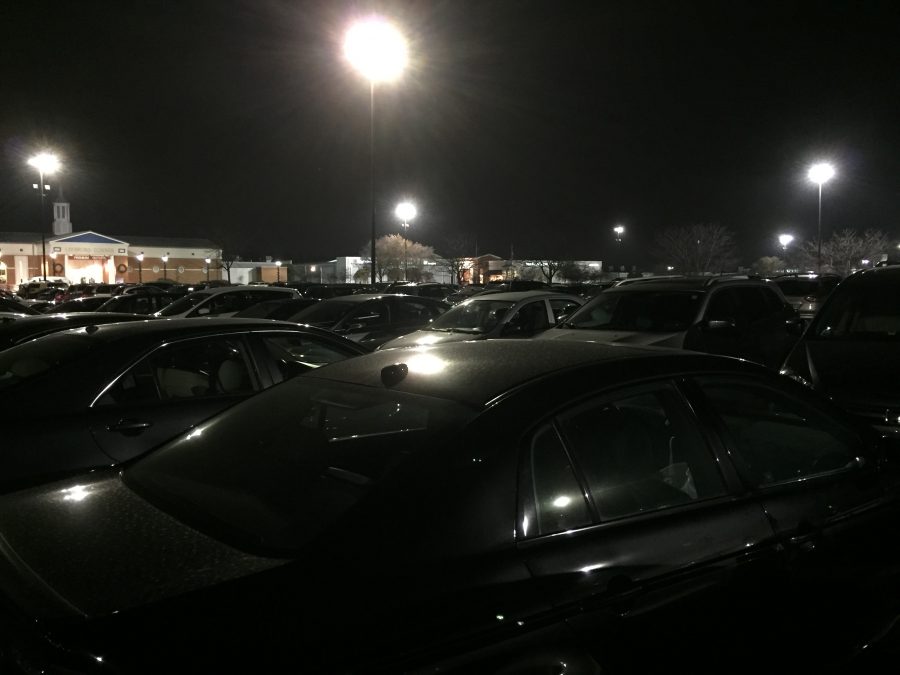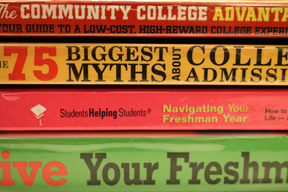The positives and the negatives that tag-along with the topic of Teen Driving, and what needs to change.
By Maria Schense
Leesburg, VA–2,270-that is the eye-opening amount of teen deaths caused by driving in 2014, according to CDC.gov. With the increased use of technology in motor vehicles, it is nearly impossible to state that the rate has not increased since then. The difficulty of putting this overwhelming number into perspective is laborious, but there is one way to look at it; according to NCES.ed.gov, the average number of students in one public high school in Virginia is roughly 1000, this means that in order to reach this death rate, all of the students from two high schools would be completely wiped out. It is hard to believe that even though this rate is alarmingly high, teen driving can still be a completely overlooked issue.
In some states, such as Virginia, driving programs like Drivers Ed and Behind the Wheel are a required class to in order to receive your license under the age of 18. However, the impact of these classes is far from drastic, according to Gale Cengage Learning, “Despite decades of research indicating driver education does not reduce crash involvement among beginning drivers, it still has tremendous appeal as a means to improve driver safety…there is no difference in the crash records of driver educations graduates compared with equivalent groups of beginners who learned to drive without formal education.” A class such as Drivers Ed only teaches students the basic rules of the road, but it cannot prepare them for real-life situations, such as collision. In a poll taken by 24 drivers of all ages, only 50% of the drivers answered the question ,“If you took Drivers Ed, do you feel like you use what you learned in the sit-down class day-to-day in your driving?,” with a yes. Many of the drivers who answered other questions on the poll said that their state did not require them to take Drivers Ed, a common occurrence in the U.S, again setting up the question of, “Does Drivers Ed really make a difference in teen driving?”
One problem that frequently comes up with the topic of Teen Driving is a specific parental belief in driving age. Some parents who, themselves, started driving between the ages of 13-14, will not allow any of their children to obtain their permit until they are over the age of 16. When questioned on how one should determine when their child should drive, Kevin Barr, a Behind the Wheel and Driver’s Ed Instructor at Tuscarora High School said that, “Experience and maturity would have the biggest influence on whether the person is ready to drive on their own or not. Driving is the most dangerous activity any of us will do on a daily basis. If you lack maturity you may tend to make riskier decisions on the road.” Having said this, parents should look more towards their child’s maturity level, and not so much on their age. This is in part because all students who pass through high school are on different levels of maturity compared to one another, and some may be ready to drive earlier than their siblings and peers, but some may have to wait longer to drive. Each student is completely different than the next, and their driving age should not be tied to the skill and knowledge of another.
A hesitation that arises with the fear of allowing students to drive is the ever-occurring, too familiar issue of texting and driving. According to EdgarSnyder.com, a law firm that specializes in representing injured people in motor accidents, “Teen drivers are 4x more likely than adults to get into car crashes or near-crashes when talking or texting on a cell phone,” but NCS.org reports that, “[With all age groups,] cell phone use while driving leads to 1.6 million crashes each year.” This being said, although texting while driving is categorized largely with teens, the issue is portrayed with adults as well. Edward Silvent, a 50-year-old Father and Avid Driver commented on this statement saying, “I know that there are a lot of really bad adult drivers out there with texting because I see it every day going to work.”
Teenagers in the 21st century grew up around technology and it has become a fundamental part of their daily life, especially cell phones; whereas many adults did not experience a technological childhood and believe that their years of driving experience can justify their texting while driving. In the Loudoun Now, a heartbreaking story was reported about the death of an infant caused by an adult, distracted driver in Lansdowne. However, a positive came out of this in that now students from all over Loudoun County are working to create a license plate to remind drivers to stay off their phones when driving, hoping in turn to avoid situations like this again. This problem occurs with drivers of all ages, and it is important for people to recognize the problem, in order to make steps toward solving it.
Besides driving classes and instructors, it is first and foremost the parent of the child’s responsibility to teach them how to drive. Shay Steinkirchner, a Newly Licensed Junior at Tuscarora High School, said, “I think that kids pretty much mimic whatever their parents do, so if my mom is texting and driving of course I am going to feel like I can text and drive because she is doing it so it is okay. So, I think that kids get the idea that they are allowed to do things that their parents can do, and that it’s right, when it’s really wrong.” Constantly, parents blame their sons or daughters driving mistakes on the children themselves or on the children’s friends, while in reality it is very likely that the parents themselves are the cause of these faults.
When asked about the influence of parental driving behaviors on students that he sees daily, Barr said, “Parents influence teen drivers all the time, both good and bad. Parents need to understand that a lot of driving behaviors are learned before their child even gets their learners permit!” Parents need to realize that are teaching the next generation of drivers and those kids are constantly watching their parents’ habits, carrying what they saw with them into their driving, and potentially could even passing on those good and bad behaviors to their children.
Although teen driving comes with many jitters of parents and somewhat risky behaviors associated with the mind of a teenager, driving as a teen can in turn be a really useful lesson overall. Being in charge of a two-ton vehicle is a really big deal and it can show teenagers the reality of the world ahead of them: life’s never-ending list of responsibilities. It also can be seen as an ultimate freedom to many teens and it shows their maturity as what they choose to do with it. In the end, it is ultimately the teen’s decision to drive and once they choose for this path of freedom to begin, their first miles are the start of the rest of life’s road trip planned ahead for them.












